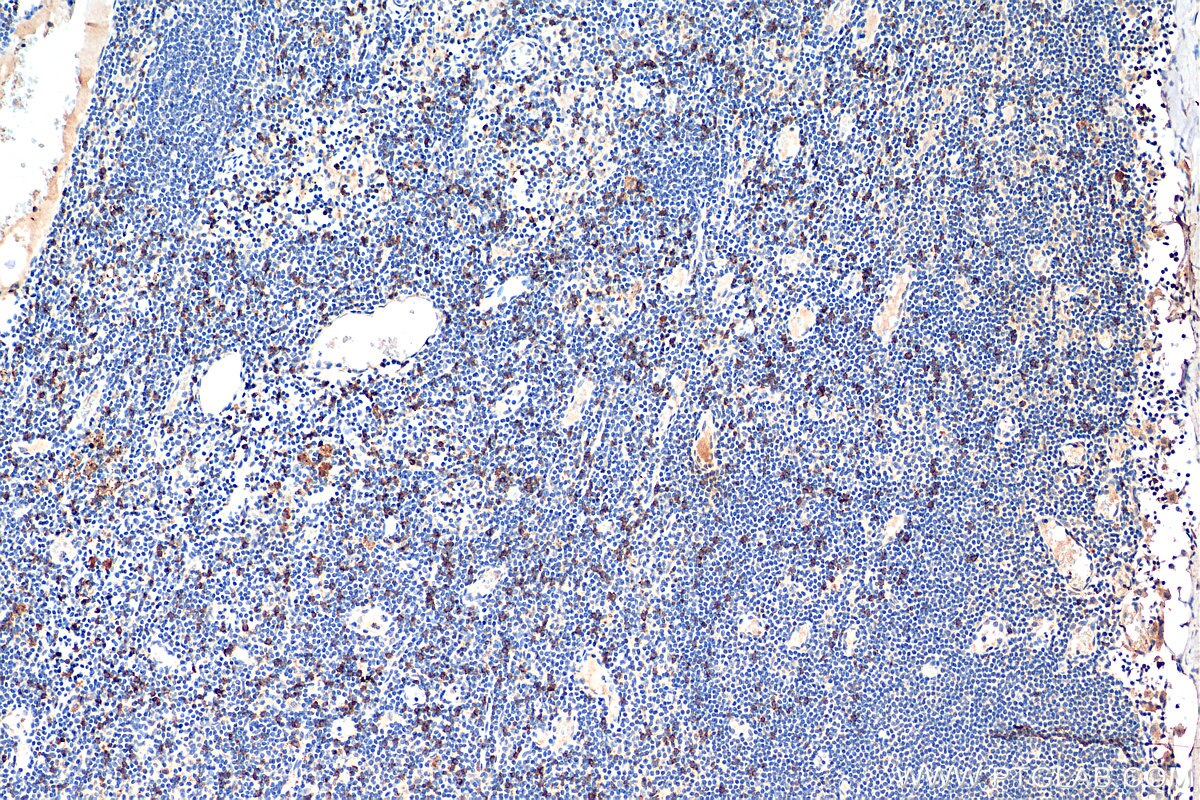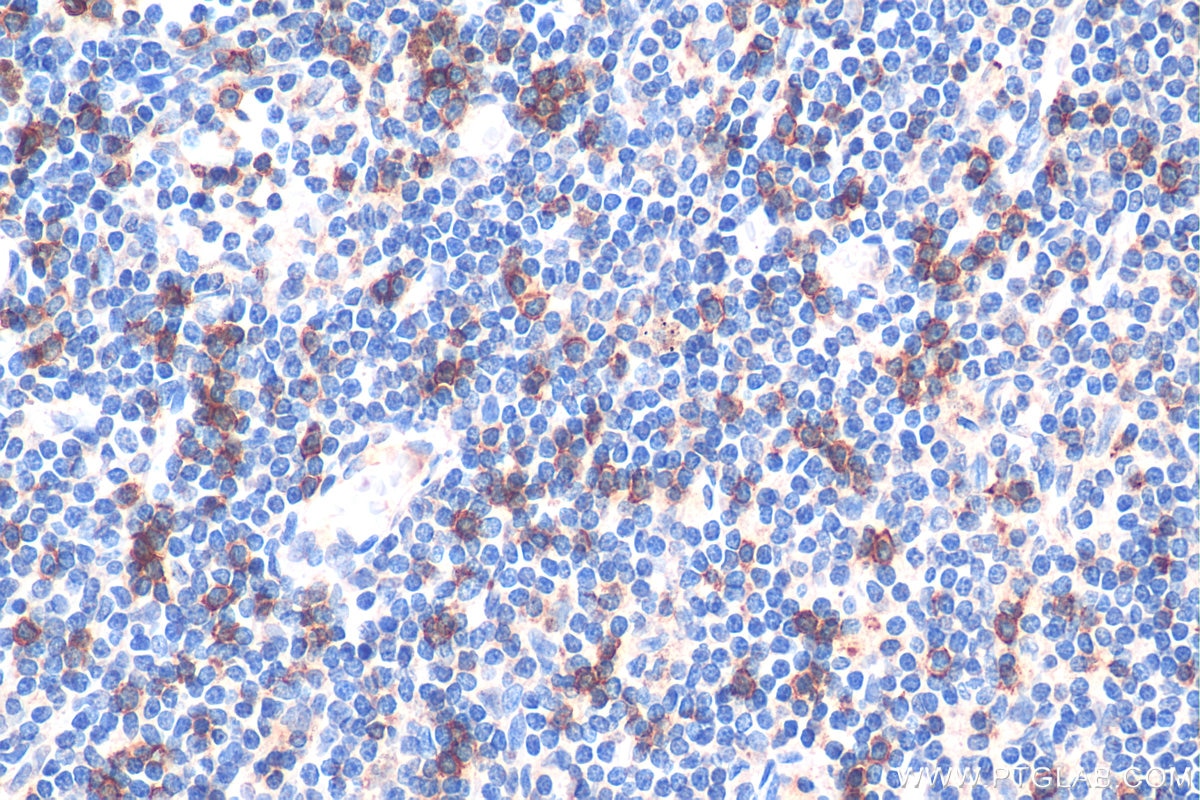Tested Applications
| Positive IHC detected in | human breast cancer tissue Note: suggested antigen retrieval with TE buffer pH 9.0; (*) Alternatively, antigen retrieval may be performed with citrate buffer pH 6.0 |
Recommended dilution
| Application | Dilution |
|---|---|
| Immunohistochemistry (IHC) | IHC : 1:1000-1:4000 |
| It is recommended that this reagent should be titrated in each testing system to obtain optimal results. | |
| Sample-dependent, Check data in validation data gallery. | |
Product Information
68432-1-Ig targets CD8b in IHC, ELISA applications and shows reactivity with human samples.
| Tested Reactivity | human |
| Host / Isotype | Mouse / IgG1 |
| Class | Monoclonal |
| Type | Antibody |
| Immunogen |
CatNo: Ag16925 Product name: Recombinant human CD8B protein Source: e coli.-derived, PET28a Tag: 6*His Domain: 22-171 aa of BC100913 Sequence: LQQTPAYIKVQTNKMVMLSCEAKISLSNMRIYWLRQRQAPSSDSHHEFLALWDSAKGTIHGEEVEQEKIAVFRDASRFILNLTSVKPEDSGIYFCMIVGSPELTFGKGTQLSVVDFLPTTAQPTKKSTLKKRVCRLPRPETQKGPLCSPI Predict reactive species |
| Full Name | CD8b molecule |
| Calculated Molecular Weight | 243 aa, 27 kDa |
| GenBank Accession Number | BC100913 |
| Gene Symbol | CD8B |
| Gene ID (NCBI) | 926 |
| RRID | AB_3085146 |
| Conjugate | Unconjugated |
| Form | Liquid |
| Purification Method | Protein G purification |
| UNIPROT ID | P10966 |
| Storage Buffer | PBS with 0.02% sodium azide and 50% glycerol, pH 7.3. |
| Storage Conditions | Store at -20°C. Stable for one year after shipment. Aliquoting is unnecessary for -20oC storage. 20ul sizes contain 0.1% BSA. |
Background Information
CD8b (T-cell surface glycoprotein CD8 beta chain) is an integral membrane glycoprotein that forms disulfide-linked heterodimers with CD8a (CD8 alpha chain). The CD8 alpha/beta heterodimer is the predominant CD8 complex expressed on the cell surface (PMID: 1534146; 2111591). CD8 is a transmembrane glycoprotein predominantly expressed on cytotoxic T cells and can also be found on natural killer cells, cortical thymocytes, and dendritic cells. CD8 serves as a co-receptor for the T cell receptor (TCR). Both CD8 and TCR recognize antigens displayed by an antigen presenting cell (APC) in the context of class I MHC molecules. CD8 plays a role in T cell development and activation of mature T cells.
Protocols
| Product Specific Protocols | |
|---|---|
| IHC protocol for CD8b antibody 68432-1-Ig | Download protocol |
| Standard Protocols | |
|---|---|
| Click here to view our Standard Protocols |






